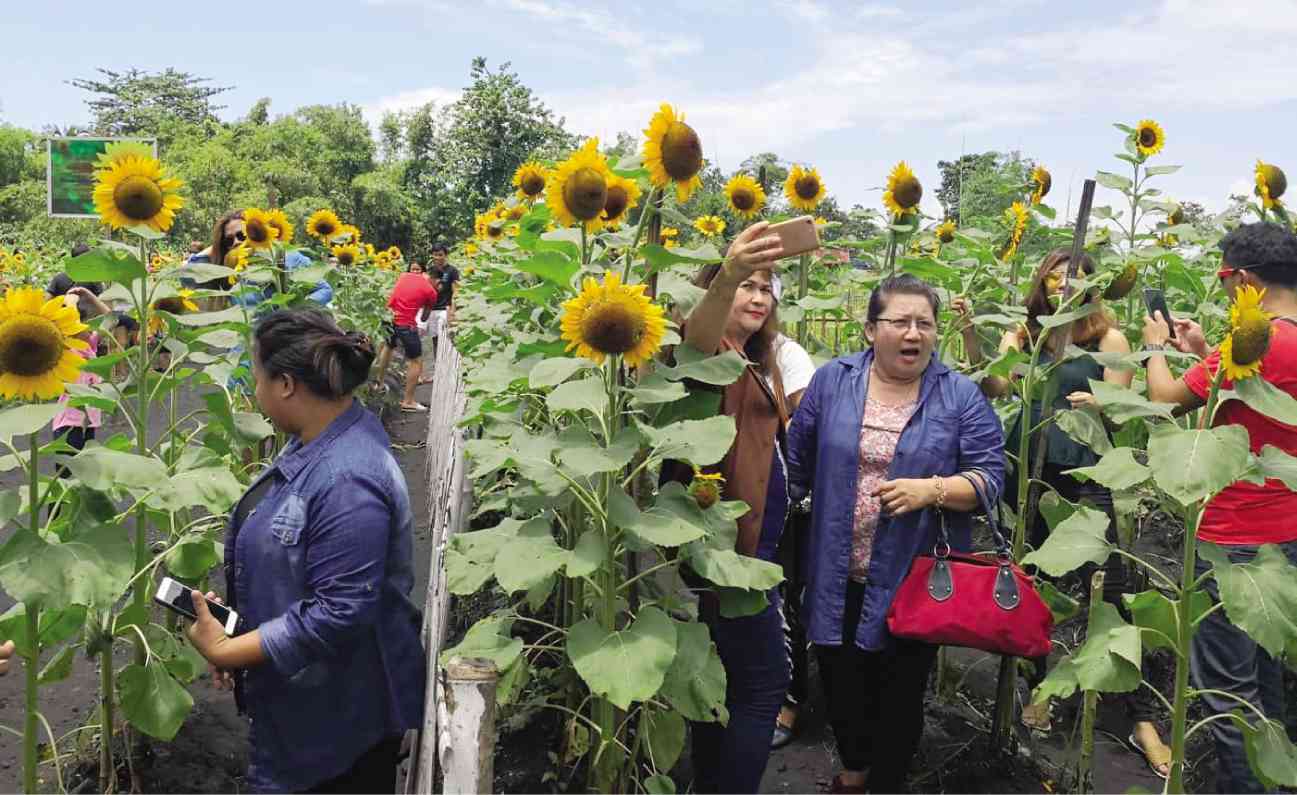In Negros Occidental, sunflower blooms from drug rehab program

BLOOM Sunflowers planted this month at Bucalan-Caci (Central Azucarera de La Carlota Inc.) Sunflower Farm at Barangay RSB in La Carlota City are expected to be in full bloom in March when summer starts. —MARTY GO/CONTRIBUTOR
BACOLOD CITY — What started as a livelihood program for rehabilitated drug users has become a new tourist attraction in La Carlota City, Negros Occidental province.
People flock to the sunflower garden of Chief Insp. Alvimar Flores and take selfies and “groufies” in the field of blooms, as well as buy souvenirs, plants, flowers and bouquets.
Bucalan-Caci (Central Azucarera de La Carlota Inc.) Sunflower Farm at Barangay RSB, La Carlota, 46 kilometers south of the provincial capital of Bacolod, also has a “love lock” area where couples hang padlocks and throw away the keys to symbolize lasting bond.
Managed by Flores’ parents, the farm opened on Sept. 12 with about 2,000 sunflower plants occupying an area of less than a hectare of land.
Flores, 33, said his fascination with sunflowers had inspired him to start the project for drug addicts and users who surrendered to the police following the implementation of “Oplan Tokhang” in Pinamalayan, Oriental Mindoro province, where he serves as police chief.
He began planting sunflowers in Pinamalayan, which were sold in Manila. The proceeds were used to help the former drug users and pushers.
Wedding plans
In July last year, Flores sent sunflower seeds to his father, Vicente, 58, a retired Caci worker, and asked him to sow these in their 100-square-meter farm in Sitio Bucalan. Vicente is a barangay councilor of RSB while his wife, Alma, works with the La Carlota city government.
Flores had intended the blooms to adorn his wedding with his nurse girlfriend, Maricar Murilla, also 33, in Tagaytay City on July 19.
“Our last name is Flores, the Spanish word for flowers, and we have always enjoyed planting flowers and have green thumbs as well,” the officer said.
But the sunflowers failed to bloom in time for the wedding. When they did, these brought joy to those who came to see the fields.
Fertile land
Soon, the small farm was crowded with visitors.
Caci management offered Vicente an area inside the mill compound where he could plant more sunflowers. The land was very fertile since Vicente’s job in Caci was to dump press mud at the proposed flower farm.
Press mud is compressed waste from the filtration of sugarcane juice, and is a good source of fertilizer.
Donations for upkeep
The sunflower farm is called “Bucalan,” the term used for the process by which press mud is obtained, Flores explained.
He said it was on that site where they had grown various types of sunflowers.
“Those who visit the sunflower farm are allowed in for free and are only asked to make donations for the people tasked with its upkeep,” he said.
The farm is open to the public, from 8 a.m. to 5 p.m.
Sunflowers need at least eight hours of sunlight to fully bloom and the flowers in the farm are usually not so nice to look at during the rainy months.
While visitors may not see flowers blooming in the farm at this time of the year, flower sale in shops will continue.
Flores said new sunflowers would be grown in December, in time for the farm’s reopening in summer, either in the first or second week of March.
By then, more attractions will be offered, he said.